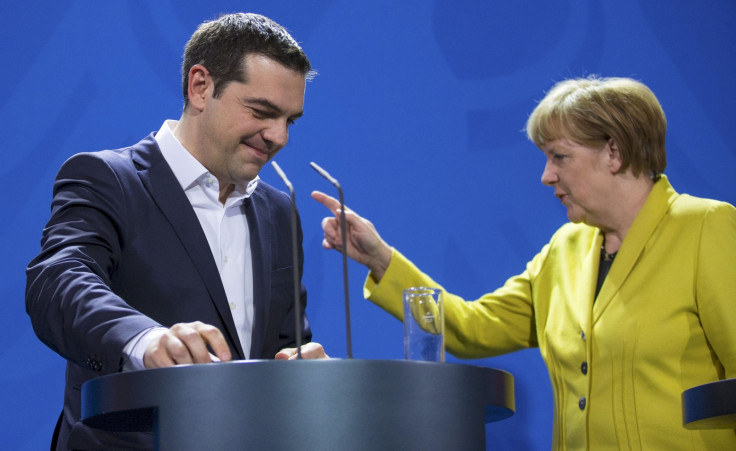Greek debt crisis: Angela Merkel tells Alexis Tsipras to take 'extraordinarily generous' offer

Greece has been urged to accept what German chancellor Angela Merkel described as an "extraordinarily generous" offer tabled by its creditors, as the latest round of European crisis talks ended.
However, the broke country's prime minister, Alexis Tsipras, hit out at the proposals, accusing creditors of "blackmail".
While not ruling out a deal, he said: "The European Union's foundation principles were democracy, solidarity, equality [and] mutual respect. These principles were not based on blackmail and ultimatums."
The new proposals would unlock €15.5bn (£11bn) in EU and IMF funding, to be paid in four instalments. The cash is enough to allow Greece to keep up with debt repayments until November and includes the crucial €1.8b needed by the 30 June deadline.
Merkel was joined by France's president, Francois Hollande, in urging Athens to approve the plan and "accept the extraordinarily generous offer from the institutions".
However, the money is dependent on reforms to pensions, labour laws and tax, concessions that Tsipras' left-wing government is reluctant to implement.
Diego Iscaro, senior economist at IHS Global Insight, said: "Uncertainty regarding the Greek government's ability to implement reforms, meet fiscal targets and negotiate a third bailout will remain high. Syriza may also have to pay a big political price for making significant concessions to creditors."
Eurogroup finance ministers will meet 27 June in the hope of striking a deal. If an agreement cannot be reached and it looks likely that Greece will miss the payment deadline, damage limitation measures will be put in motion to nullify the threat of contagion to other eurozone countries.
"Even if the deal is approved and implemented, we believe that the creditors' proposals will have a recessionary impact on the economy. As a result, Greece's ability to meet any fiscal target agreed with the creditors will be extremely compromised. Even if we believe a deal to be the most likely scenario, it is impossible to ignore the possibility of Greece entering a default on 1 July," Iscaro added.
© Copyright IBTimes 2025. All rights reserved.






















